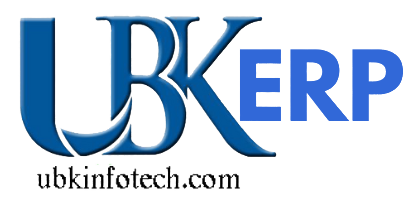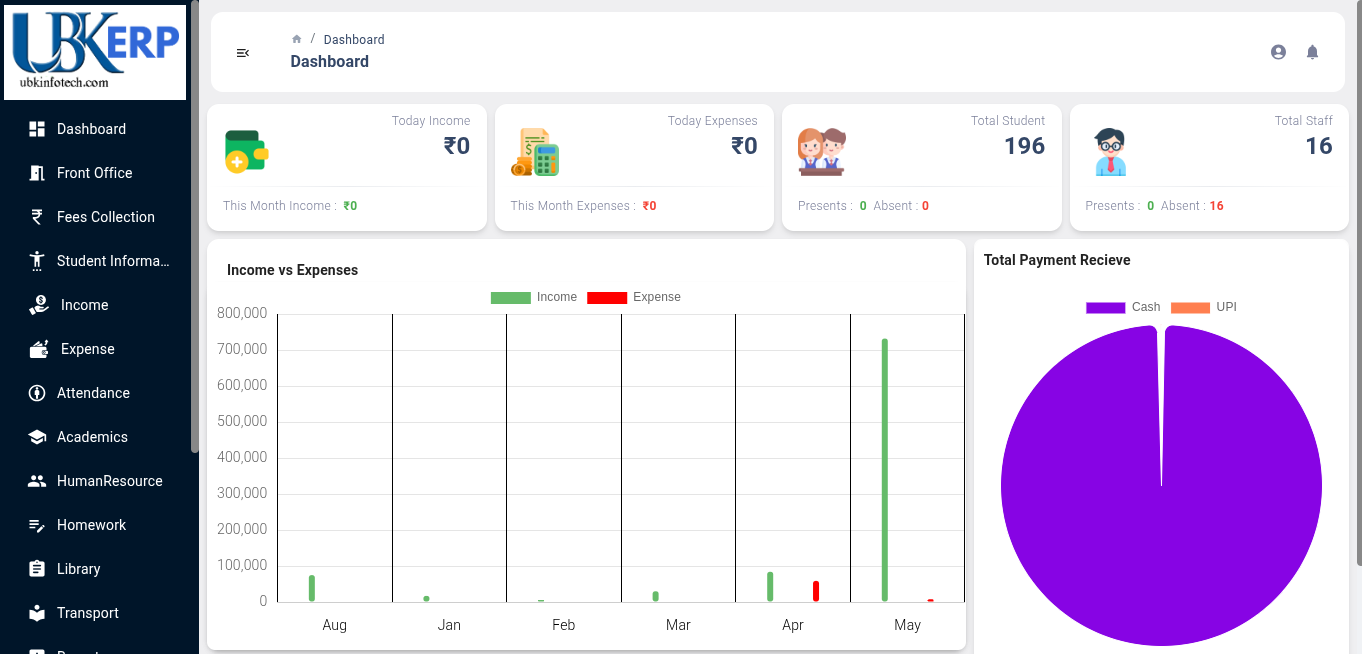ERP Software Meaning, Modules & Benefits
ERP software, full form is Enterprise Resource Planning software, is a comprehensive digital system designed to streamline and integrate various business processes within an organization. It acts as a centralized platform that brings together functions like accounting, human resources, inventory, sales, customer relations, and more—making data accessible in real time and ensuring smooth communication across departments. ERP software improves efficiency by automating routine tasks, reducing manual errors, and helping decision-makers gain actionable insights through accurate reporting. From schools and hospitals to factories and retail chains, ERP has become an essential tool for managing operations and supporting growth in a structured, intelligent way.
Example:
In schools, ERP software handles everything from student admissions to attendance tracking, exam results, fee payments, and communication between teachers and parents—all in one system.
Main Parts of ERP Software
ERP software is divided into different components, often called modules, each responsible for handling a specific area of an organization. These modules are interconnected and help various departments work in sync. Below are the most common areas an ERP system manages:
Managing Finances
A core part of any ERP system is its ability to handle money matters. This includes keeping track of all income and expenses, managing financial statements, automating billing, and ensuring all financial records are accurate and audit-ready.
Handling Workforce Operations
The HR section of an ERP focuses on everything related to employees. From recording attendance and approving leaves to processing salaries and storing staff data, it helps HR teams save time and maintain transparency.
Monitoring Stock and Resources
Whether it's managing raw materials in a manufacturing unit or school supplies in an educational setup, the ERP system updates stock levels in real time and avoids shortages or overstocking.
Improving Communication with Stakeholders
It records interactions with customers—or in schools, with parents—and helps in follow-ups, feedback collection, and maintaining trust.
Overseeing Purchases and Vendors
An ERP also simplifies how purchases are made. It manages supplier details, processes purchase orders, keeps track of deliveries, and handles vendor payments—all from a single screen.
Simplifying Education Management (for Schools)
These include exam scheduling, result publishing, student evaluations, and even managing class routines.
Running Libraries and Hostels Smoothly
For institutions that provide hostels and libraries, the ERP helps allocate rooms, monitor usage, manage book checkouts and returns, and maintain order without relying on paper-based systems.
ERP in Education: Best School ERP Software
Schools today deal with far more than teaching. Administrative overload, data management, fee tracking, and maintaining communication with parents are all critical. That’s why the best school ERP software -ubkerp is designed specifically for educational institutions.
Key Features of School ERP:
- Student Information System (SIS)
- Online Fee Collection & Tracking
- Automated Attendance with RFID/Biometrics
- Result Processing & Report Cards
- Communication Portal for Parents & Teachers
- Mobile App for Easy Access
Benefits:
- Streamlined administration
- Error-free fee and attendance records
- Real-time notifications for parents
- Improved student performance monitoring
Types of ERP Deployment
ERP solutions can be deployed in different ways depending on budget, accessibility, and technical infrastructure:
Cloud-Based ERP: Hosted online, accessible from anywhere. Ideal for schools with limited IT resources.
On-Premise ERP: Installed locally on servers. Offers more control but needs maintenance.
Hybrid ERP: Combines cloud and on-premise benefits.
SaaS ERP for Schools: Subscription-based school ERP systems with regular updates and support.
Benefits of ERP Software
The impact of ERP software goes beyond automation. Here’s how it adds value:
- Efficient Operations – Integrates all departments on one platform.
- Accuracy – Reduces errors in data management.
- Reduces Long-Term Expenses – By streamlining tasks and minimizing manual work, ERP systems help cut down on routine administrative costs over time.
- Better Decision-Making – Real-time data insights help management act faster.
- Transparency – Keeps all stakeholders informed and aligned.



 By UBK-Infotech
By UBK-Infotech